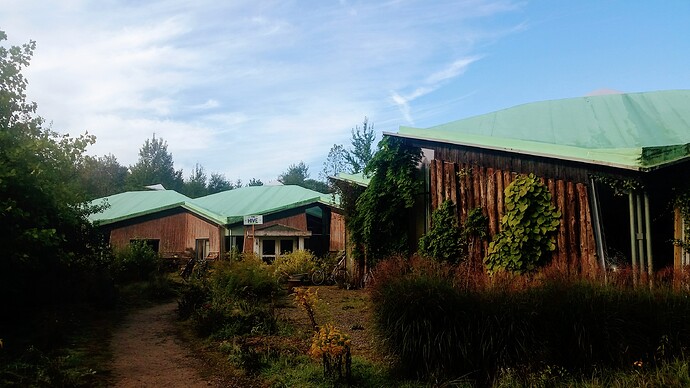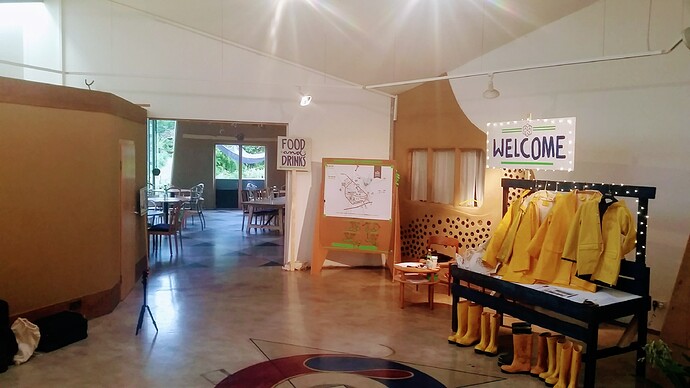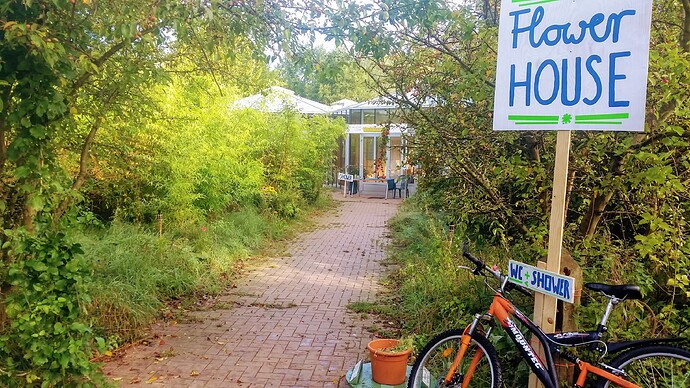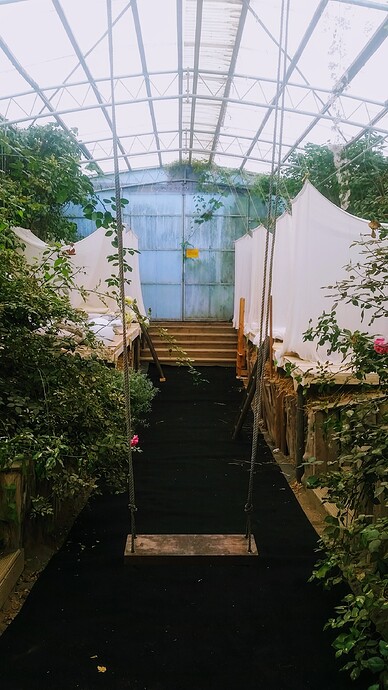Do I want to live a regular, somewhat boring life, or an interesting life? Can I put myself in a greater-than-life service, or do I learn to better care for myself before I care for the world? These questions have been lingering for years, and became more profound after I moved in with my co-workers into The Reef Brussels, edgeryders first home base.
I just spent a few good days near Nieklitz (Germany) in a gathering organized by Open State, the professional camp builders who built POC21 and Refugee Open Cities. The camp, funded by Advocate Europe, offered a rare occasion to 30 something activists to slow down and reflect on our work; with yoga, meditation, ecstatic dance intermissions (sic!), and no hard commitment to produce an artefact by the end. One could wander and ponder about whether pairing people with radically different political worldviews changes their civic behavior, but also chat about good apps for practicing mindfulness (I hear it’s Headspace).
Of 40 people around the camp, about half of us were “participants”, while the other half were organisers and hosts, an extensive team affiliated to Open State and the place.
It was the Place which really made my camp experience. With scarce Internet and mobile signal, vague appearances of machines, we found ourselves in a nature park with a history, at a two-hour train ride en route from Berlin to Hamburg. Wir Bauen Zukunft (translates We Build Future) aka “the Nieklitz crew” is a collective that in the beginning of 2016 bought 18 hectares of land with a loan from a generous private person. This was previously a biology park, a multi million euro technical project of a local architect in the late 90s which failed to bring in enough visitors or people to fill spacious workshops. The ensemble had severely deprecated due to lack of maintenance and use. Since 2016, the Nieklitz crew rebuilt most of it, with a lot of attention for craft and design. It is quite an experience to walk between The Hive main hall and kitchen, the Scent House and House of Flowers, all equipped with a few dozen beds, toilets, indoor and outdoor shower(s); or to walk the green paths between large workshops and storage spaces, old trailers, camping and camp fire spots. See it for yourself:
The Hive is the hq, with event space, kitchen/dining area and living quarters too
Main hall and dining area
The Flower House
The Scent House
The outdoor shower (CC-BY-SA - Open State)
It is my understanding that the group works for Earth sustainability, with a mission of co-working in nature (the lack of working Internet was temporary). They partially use geotermal energy (underground pipes for heating); research water efficient biogas stoves (to work through methanization); plan an upcoming earthship; organise renovation and building camps on the land. All these build up a sustainable space, with awareness that “everything we produce we need to sell”, as someone said to me. All would then call for how-to innovation workshops, for others to learn how to do it. They also host organisations/ events to make temporary use of the space, and encourage deeper exchange: permaculture meetings would teach everyone new practices, while experimenting on the Nieklitz land. Like most skilled communities I have seen, the boundaries between those who host and those who cross their path are purposefully blurred.
It also reflects in the group’s structure. Formally, it is a cooperative (in German the legal term is genossenschaft) where members buy-in an amount of 5K to co-own the property. There are 18-20 of them, with many active supporters - Open State itself has contributed large share of the camp funding to equip the space for future uses. About 10 people also live in the space, putting their time and skills into servicing it, but needing to make ends meet in the real world still.
I asked everyone I got the chance about their involvement and how the community develops. The points below are valuable takeaways for me and hopefully for edgeryders OpenVillage in-the-making:
1. Reaching out to fitting partners in a strategic way. Securing the resources to get started involved 3 questions: What’s the topic? Who’s around to partner up with? Where does the money come from? It could be that the OpenVillage solves 2) and 3) by being hosted temporarily in a community whose values are aligned, which has the space for us: could be an industrial park, an eco-village, a farmland and so on.
2. Time set aside for planning, group structuring and reflection. The core group had known each other for about 3 years prior and intersected in various projects. The cooperative model looks promising because in it, members share clear rights, but they also share the responsibility in a way that doesn’t break the structure when someone drops out. Everyone participates in weekly meetings and they apply sociocracy 3.0 to all decision making. Reportedly, it is not easy, but the collective understands that it’s a process and gets help when needed (professional coaches).
3. A healthy mix of working, living, and the space in between In the Nieklitz group, I found a surprising combination of brain meets the heart meets the hands. It is not a hackerspace with living quarters, nor is it a hippie commune. Or if it is any of them, it escaped me, as I was talking to such diverse people - designers, artists, cooks, planners and highly skilled builders. The space reflects that: as part of the package one can try three different kinds of showers – the inside shower, the outside shower, and the love shower ![]()
My own questions about making a life for oneself lingered. It seemed that the deep personal investment of people is not only in making a project happen. Someone I spoke to framed it as having a chance to live the lives we want, outside the oppression experienced in the city. Wir Bauen Zukunft and their extended loving arms like Open State are building future, in much needed radical, but gentle ways. Chapeau!
Thank you so much Anja, Lale, Laurent, Kyra, Felix, Kari, Cristoph, Ele and everyone for the time we spent together. I look forward to meeting again!




 I know I can speak for the entire Wir bauen Zukunft Team, that we are super happy you and your fellow participants had such an inspiring and enjoyable time on our project site. It was a real pleasure to host you!
I know I can speak for the entire Wir bauen Zukunft Team, that we are super happy you and your fellow participants had such an inspiring and enjoyable time on our project site. It was a real pleasure to host you! I had so many great conversations that sparked new ideas and gave me different insight to quite a variety of different topics. Time wasn’t enough to connect to everyone who attended, however every single contact was rocking my sweet socks
I had so many great conversations that sparked new ideas and gave me different insight to quite a variety of different topics. Time wasn’t enough to connect to everyone who attended, however every single contact was rocking my sweet socks